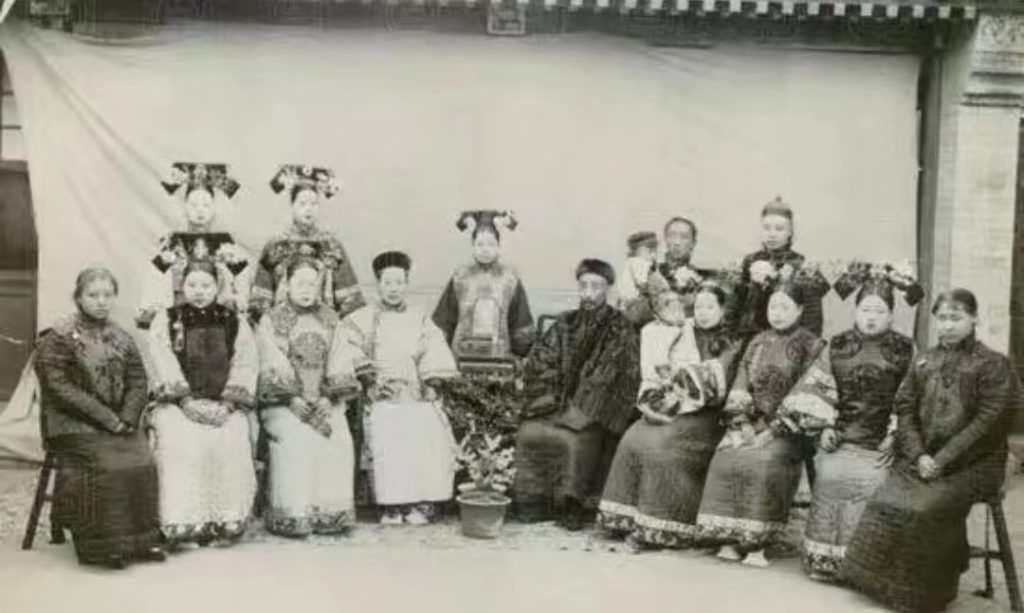Meet Emily, an adventurous soul from the United States, who found her heart drawn to China’s captivating culture and traditions.
Marrying into a Chinese family, Emily’s life took on new dimensions as she experienced the joys and challenges of having a Chinese husband.
In this article, we will follow Emily’s journey and explore the meaning of “husband” in Chinese, the unique advantages and potential pitfalls of having a Chinese husband, whether Chinese guys are controlling, and the historical and modern perspectives on marriage in China.
The Meaning of “Husband” in Chinese

Chinese Character for “Husband”
As Emily delved into her new life, she discovered the fascinating Chinese characters for “husband” – “丈夫” (zhàngfū). The character “丈” represented a husband’s stature, while “夫” embodied noble qualities, a perfect representation of the role her husband played in their family.
Pronunciation
Emily’s early attempts to pronounce “zhàngfū” were met with laughter and encouragement from her husband. The rising tone on the first syllable and the neutral tone on the second became a fun challenge for her to master.
Cultural Significance
Living in China, Emily experienced firsthand the importance of family in Chinese culture. Her husband’s dedication to his parents, siblings, and extended family opened her eyes to the deep-rooted significance of family bonds in Chinese society.
Meet your potential Chinese husband online. These are the free sites and apps that still work until today.
Why Chinese men like to date foreign girls and How to know if they like you as potential wife?Advantages of Having a Chinese Husband
- Respect for Elders: Chinese culture often places great importance on respecting elders and their wisdom. A Chinese husband may show deep respect and care for the elderly members of both your families.
- Strong Family Bonds: Chinese families tend to have strong intergenerational ties. Your husband may value creating a loving and supportive environment for your immediate family and extended relatives.
- Patience and Perseverance: Chinese culture often emphasizes patience and perseverance in the face of challenges. Your husband may exhibit determination and resilience in various aspects of life.
- Hospitality: Chinese people are known for their warm hospitality towards guests. Your husband may extend this hospitality to friends and family, making them feel welcome and appreciated.
- Financial Responsibility: Some Chinese individuals are raised with a strong emphasis on financial prudence and responsibility. Your husband might exhibit careful financial planning and a willingness to secure the family’s future.
- Education and Learning: Chinese culture traditionally places high value on education. Your husband may be supportive of your educational pursuits and those of your children.
- Appreciation for Traditions: A Chinese husband may cherish and uphold traditional values and customs, adding a sense of cultural richness and heritage to your life together.
- Resilience in Adversity: Chinese history is filled with instances of overcoming adversity. Your husband might possess a resilient spirit and a positive outlook, helping you both navigate challenges together.
Disadvantages of Having a Chinese Husband
Traditional Gender Roles
Living in a culturally rich environment also meant navigating certain traditional gender roles. At times, Emily found herself adjusting to her husband’s expectations of her taking on more household responsibilities.
Communication Challenges
Language became a bridge that Emily and her husband continuously worked to cross. While his English was excellent, complex emotions sometimes required the comfort of communicating in their native languages.
Influence of Confucian Values
Emily noticed that Confucian values played a role in their interactions, particularly in respecting elders and maintaining family harmony. It took time to strike a balance between cultural norms and personal boundaries.
Privacy Concerns
As an introvert, Emily initially found the emphasis on “face” and family reputation overwhelming. She learned to navigate between cultural norms and her need for privacy in certain matters.
Are Chinese Guys Controlling?

Breaking Stereotypes
Through her interactions with various couples, Emily discovered that Chinese guys are as diverse as any other group. Many Chinese husbands, including her own, displayed respect and consideration for their partners.
Understanding Individual Differences
Emily emphasized that generalizations could be misleading. Each individual’s personality and behavior should be appreciated on their merit, independent of cultural background.
Balancing Power Dynamics
Emily and her husband believed in equal partnership, where decisions were made collaboratively, and both their perspectives were valued.
How Many Wives Can Chinese Marry?

Historical Context
Emily’s exploration of China’s rich history revealed that polygamy was once practiced among certain segments of society.
Current Legal Status
In modern China, polygamy is illegal, and monogamous marriages are the only legally recognized form of union.
Modern Perspectives on Marriage
Contemporary Chinese society emphasizes emotional connection and shared life goals, making monogamous marriages the prevailing norm.
Monogamy vs. Polygamy
Emily acknowledged the importance of understanding the historical context of polygamous practices without romanticizing them, while appreciating the contemporary norm of monogamy.
Conclusion
Emily’s life as the wife of a Chinese husband had been an adventure filled with love, growth, and cultural enlightenment. Embracing the advantages of family-oriented, caring, and committed partners helped her navigate the challenges brought on by cultural differences.
Through open communication and respect for each other’s backgrounds, Emily and her husband built a harmonious and fulfilling marriage.
FAQs
FAQ 1: Is it common for Chinese husbands to be the sole breadwinners in the family?
While traditional roles once dictated this, modern Chinese families increasingly adopt dual-income models to support their households.
FAQ 2: Do Chinese husbands expect their wives to follow traditional roles at home?
Expectations differ among individuals and families. Some may adhere to traditional roles, while others embrace more modern and egalitarian values.
FAQ 3: What are some common challenges faced by international couples with a Chinese husband?
Language barriers, cultural differences, and navigating traditions can present initial challenges, but understanding and patience help overcome them.
FAQ 4: Are there any specific cultural customs that a foreigner should be aware of when marrying a Chinese husband?
Respecting elders, participating in family gatherings, and showing genuine interest in Chinese customs are gestures that foster positive relationships with in-laws.
FAQ 5: How do Chinese men express affection towards their wives?
Chinese men often express affection through thoughtful gestures, dining out, gifting and demonstrating care and concern for their wives’ well-being.


